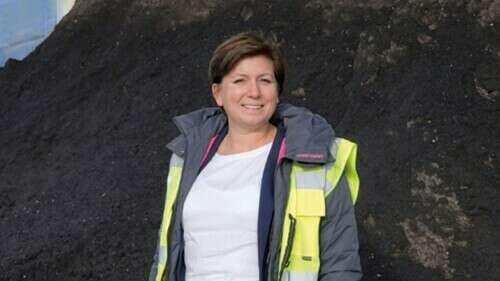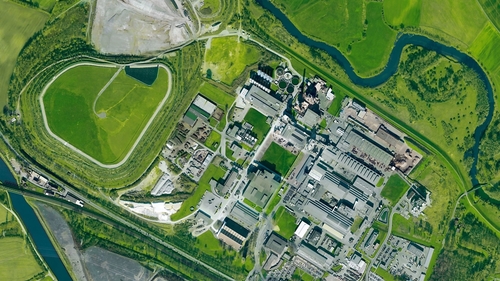A circular economy pioneer
Barbara Junker is, without doubt, one of the early protagonists of her sector. And an important one as well. As managing director of RETERRA Service GmbH – a leading German firm in the biomass management sector – she has been helping to shape the future of sustainable waste management from her offices in Erftstadt in Germany’s Rhine region for three decades now. We met up with her to discuss a whole number of interesting topics, including the development of RETERRA’s business, the challenges faced by the sector, and the route she took on her way to becoming head of this innovative company.
From composting to a circular economy business: the evolution of RETERRA
“Composting is a form of closed loop recycling that has been going on for centuries. In fact, it is the very first form of closed loop recycling that ever existed,” explained Barbara Junker. Her passion for her job is obvious. With her and others at the helm over the years, RETERRA has succeeded in turning this ancient form of recycling into a highly modern industrial sector. In a world where resource efficiency and sustainability are becoming ever more important, it turns out that one solution can be found, quite literally, on our own doorsteps – in our food and garden waste bins.
Founded back in 1991, RETERRA has transformed itself from a regional composting business into a nationwide biomass management specialist. “We have made big strides, further developing both our products and the technology we use. And we are bigger as well,” commented Junker, summing up.
“New areas of business have also been added to our portfolio, such as recycling sewage sludge, collecting and recycling food waste, and producing woodchips and fuel from old timber.”
Junker’s technical and scientific knowledge very much comes to the fore when she talks about the company’s development. Having studied engineering (she specialised in environmental and hygiene technology), she has a deep understanding of the complex processes used at her company. “When I joined the business, the plants were still using open composting areas. In the 90s, people thought this technology would continue long into the future – everyone was building large plants that were meant to last for decades.” But rapid progress was made in this field. Nowadays, the chain of systems used to process and recycle biomass is much longer and RETERRA operates a network of cutting-edge plants that can do far more than ‘just’ composting.
“Composting is a form of closed loop recycling that has been going on for centuries. In fact, it is the very first form of closed loop recycling that ever existed.”
Barbara Junker, Managing Director of RETERRA Service GmbH
From a waste product to a recyclable material
Just like its parent company REMONDIS, this firm’s philosophy is based on the idea of recovering valuable resources from waste. “Our composting plants are increasingly turning into biomass plants,” Junker explained. “We not only recycle organic and garden waste so the materials can be reused. We are also increasingly making the most of the energy potential of these materials.”
One focus here is on the production of bio-gas. “The biowaste is placed in a digester where we produce biogas that is then transformed into electricity,” she said, explaining the route that the majority of this type of waste takes. The company is planning to invest more in the production of biomethane, which can be fed into the gas network as a substitute for natural gas.
It is obvious just how committed Barbara Junker is to these topics. Her eyes light up when she starts talking about the advantages of compost: “We want to show that compost is an excellent fertiliser that stores both humus and water. This is particularly important – and especially for farmers – as we find ourselves experiencing ever longer periods of drought.” Her enthusiasm is catching and it is clear that she is well aware of how important her work is and the positive impact it has on both the environment and climate.
Latest news
Ports of Duisburg and Rotterdam advance energy transition together
Port of Rotterdam →With this LoI, the two major European logistics hubs reinforce their goal of jointly developing sustainable transport corridors via waterways as well as future-oriented initiatives for the energy t...
BASF constructs new electronic grade ammonium hydroxide plant in Ludwigshafen
BASF SE, Ludwigshafen →State-of-the-art facility to support the development of the advanced European semiconductor industry. New capacity meets growing demand for the manufacturing of chips in Europe
SynPet Technologies to bring emerging technology in plastics recycling to the Port of Antwerp-Bruges
Port Of Antwerp →SynPet Technologies is investing €300 million in an innovative facility that converts all types of plastics into a circular naphtha substitute without pre-treatment and with efficient conversion ra...
NEXTCHEM awarded a feasibility study by Mana Group and Equinor for the production of sustainable fuels in Norway leveraging its NX Circular™ technology
With the support of NEXTCHEM, Mana (NG Nordic) and Equinor are entering an early-stage strategic partnership to explore the potential development of the Nordics' first large-scale waste-to-methanol...



